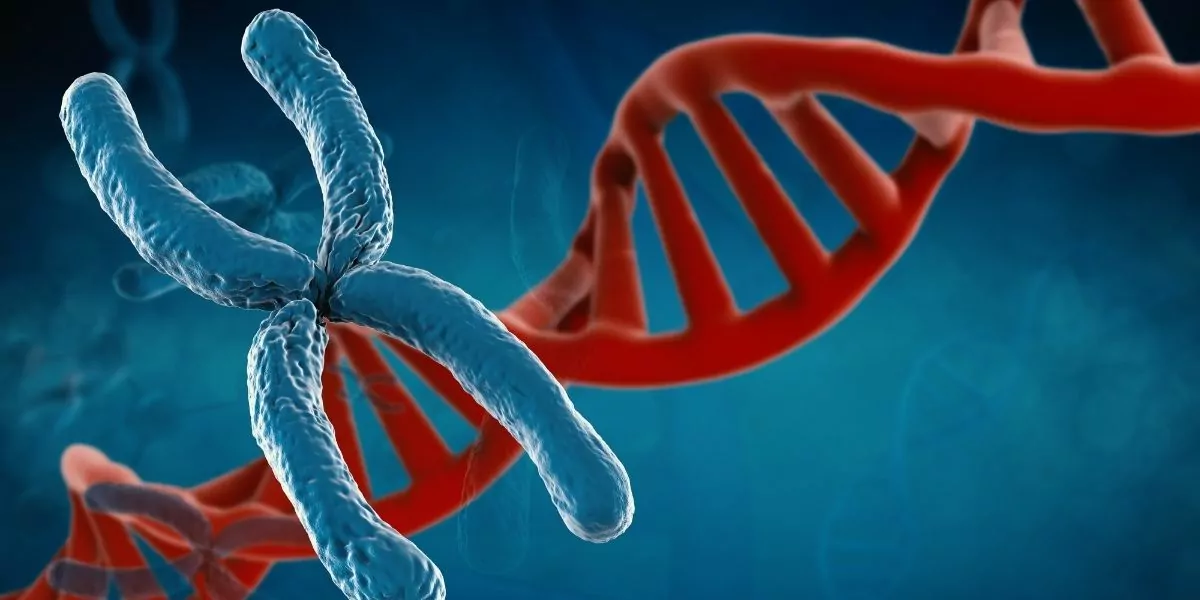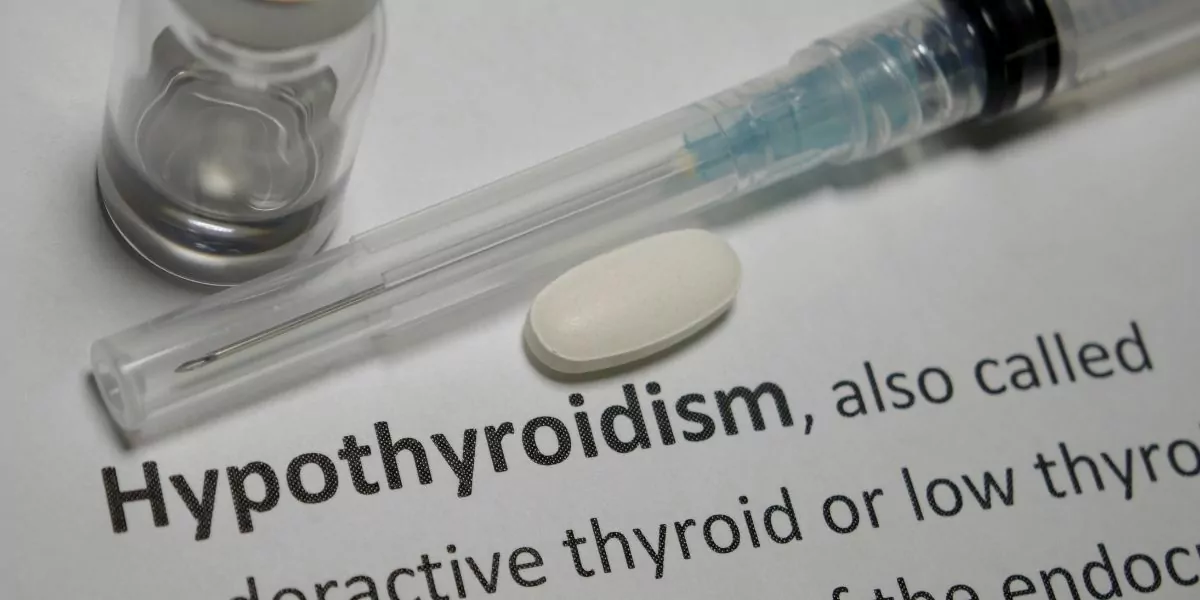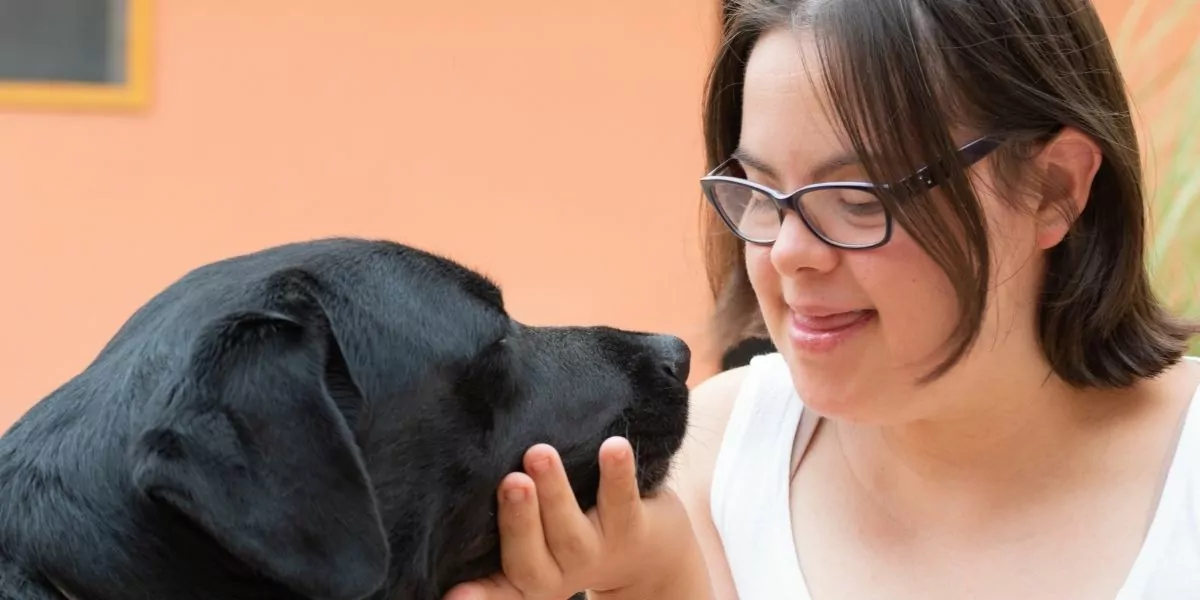Can a Dog Have Down Syndrome?
The simple answer is not because it has not yet been determined what exact genetic condition a Down Syndrome dog would be described as having.
The following factors play a role in why we cannot tell if a dog has Down Syndrome:
- Chromosomal abnormalities in dogs usually lead to in utero or early death in puppies.
- The genetic testing and research required to identify dogs with Down Syndrome are simply not available.
- Down Syndrome is a mutation in humans with 23 chromosomes, but dogs have 39; therefore, we cannot.

What is Down Syndrome?
Most humans have 23 pairs of chromosomes, and one copy of each chromosome is inherited from our parents.
Down Syndrome is a congenital condition that occurs when an additional full or partial copy of chromosome 21. This leads to extra genetic material that affects cognitive and physical development. Chromosomes determine the expression of genes that control everything from our physical appearance to the predisposition to developing diseases.
How do Dogs Get Down Syndrome?
Due to inadequate research, we cannot claim that dogs can get Down Syndrome. Instead, genetic conditions are either inherited from the dog’s parents or occur in utero during early development, leading to an alteration in normal physical development.
Genetic research in veterinary medicine is advancing every day. We will soon hopefully be able to better understand special needs dogs and the origins of their disorders.
Characteristics Associated With Down Syndrome
The associated characteristics of Down Syndrome can include varying degrees of intellectual impairment and poor muscle tone, and a palmar crease. Down syndrome individuals struggle with medical conditions such as hearing loss, heart defects as well as eye disease.
They also develop certain physical features, which include flattened faces and upward slanting eyes. There are three different types of Down Syndrome, and each one has various side effects, so not all people with Down Syndrome are alike.
The subtypes of Down Syndrome include:
- Trisomy 21 – This is when two copies of chromosome 21 are inherited because of faulty separation in either the egg or the sperm.
- Translocation – This occurs when an extra copy of chromosome 21 attaches to another chromosome.
- Mosaicism – This is a rare form where only some cells have an extra chromosome, and others don’t.
Congenital or Developmental Conditions That Can Look Like Down Syndrome in Dogs

Hypothyroidism
Hypothyroidism is one of the most commonly incorrect diagnosed endocrine conditions, but it is hereditary. It is caused by low or absent levels of the thyroid hormone. The symptoms affect organ development and function as well as:
- Slow growth eventually resulting in small stature
- Large, protruding tongue
- Short limbs and poor muscle tone
- Cognitive delay
- Delayed opening of the eyes and ears
- Poor skin and coat health
- Slow metabolism
Pituitary Dwarfism
This condition is caused by a growth hormone deficiency, leading to a dog developing a small or stunted physical conformation. They also have a high risk of developing various health conditions such as renal insufficiency, which primarily affects German Shepherds and certain wolf hybrid breeds.
Congenital Heart Disease
This disease can occur due to both genetic and environmental or nutritional factors, and the severity of the symptoms depends on the specific defect.
Congenital Hydrocephalus
This occurs when spinal fluid accumulates due to an overproduction or a drainage problem in the brain. This leads to increased pressure in the brain as well as several other symptoms:
- Setting sun sign meaning the eyes are directed downwards and possibly outwards.
- Seizures
- Blindness
- Head pressing and circling
- Mental dullness or inability to house-train
Portosystemic Shunt
A portosystemic shunt occurs when a connection persists; it forms between the portal vein or one of its branches, resulting in blood bypassing the liver. Clinical signs include:
- Stunted growth
- Poor muscle development
- Abnormal behaviors such as disorientation, staring into space, circling or head pressing
- Seizures
If your puppy begins to show symptoms that are evocative of Down Syndrome, it is vital to take them to the vet for a full exam. Tests to diagnose suspected congenital diseases can be costly or inconclusive. Sometimes, the prognosis is guarded, so it is important to remember what is best for your pet and their quality of life.

How Do You Take Care of a Dog With Special Needs?
Should your pet be diagnosed with the condition that classifies it as special needs, it is essential to monitor their health closely and provide them with a high standard of care to ensure that they enjoy a good quality of life.
Here are a few pointers to keep your special needs dog as happy and as healthy as possible:
Regular Vet Visits
Caring for a special needs dog comes with many vet visits to ensure that they are healthy and coping with their symptoms. They may need regular blood tests and possibly chronic medication as well as regular quality of life assessments. It is important to stick to any treatment plans developed by your vet to ensure your pet stays comfortable.
Safeguard Your Environment
Dogs with intellectual or developmental delays are at a high risk for accidents, so it is crucial to ensure your home environment is as safe as possible. For example, stairs, elevated floors, swimming pools, or sharp gates and fences can lead to various injuries if they are not safeguarded.
High-Quality Nutrition
A balanced and healthy diet is key to keeping your special needs dog fit and comfortable. High-quality protein and balanced diets ensure your pet won’t develop deficiencies or become overweight.
What to Expect With a Down Syndrome Dog
Special needs dogs may have shortened life spans due to underlying health conditions and may not exhibit normal dog behaviors. Their ability to play fetch, pick up tricks, or be trained may not be possible, and they may also not be able to act as guard dogs either due to their mental and sensory impairments. They could also struggle a lot with house training.
Special needs dogs will also not always easily fit into multi-dog households or homes with small children, so it is essential to bear this in mind as their particular needs may lead to fear-reactive aggression or bullying.
It is not advisable to breed with special needs animals, so be sure to either avoid your pet being bred or taking them to be sterilized if they are healthy enough to undergo surgery.
Special needs dogs require a lot of time and care, which means that it is a big responsibility for the primary caregiver. It can be pretty stressful, so be sure to establish a good support network and have a good professional groomer, vet, and pet sitter to help you give your pet the best quality of life.

The Similarities and Differences Between a Human and a Dog With Down Syndrome
Abnormal chromosomal conditions in humans and dogs can share a few minor similarities, and this can include:
- Smaller than average face and/or head
- Delayed muscular growth and cognitive development
- Poor eyesight and/or hearing
- Physical deformities, such as short legs
A significant difference between humans and pets with special needs is that humans have 23 pairs of chromosomes, and Down Syndrome in humans occurs explicitly on chromosome 21. Dogs have 38 pairs of chromosomes, and there is not enough research to determine the exact chromosome on which certain anomalies arise.
Dogs also tend to have a lower quality of life if diagnosed with a genetic disease. Therefore, their prognosis is somewhat guarded due to several factors, including premature mortality and increased morbidity and neglect from mothers due to natural instinct or elective euthanasia due to poor quality of life.
Conclusion
Even though the ability to tell if a dog has Down Syndrome is not yet available, we can still try to give special needs dogs a chance. The most important thing to remember, though, is also to try and provide them with the best possible existence without compromising their quality of life
